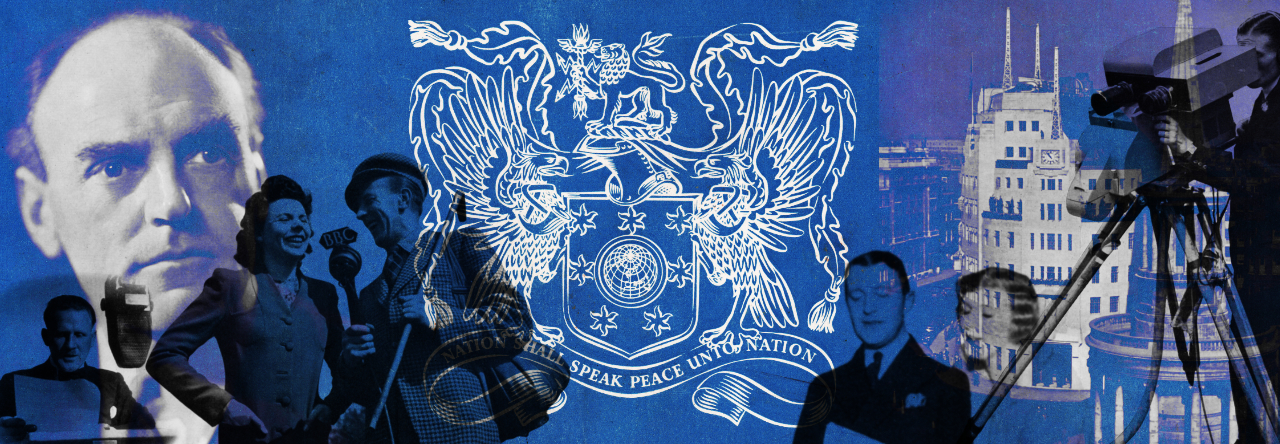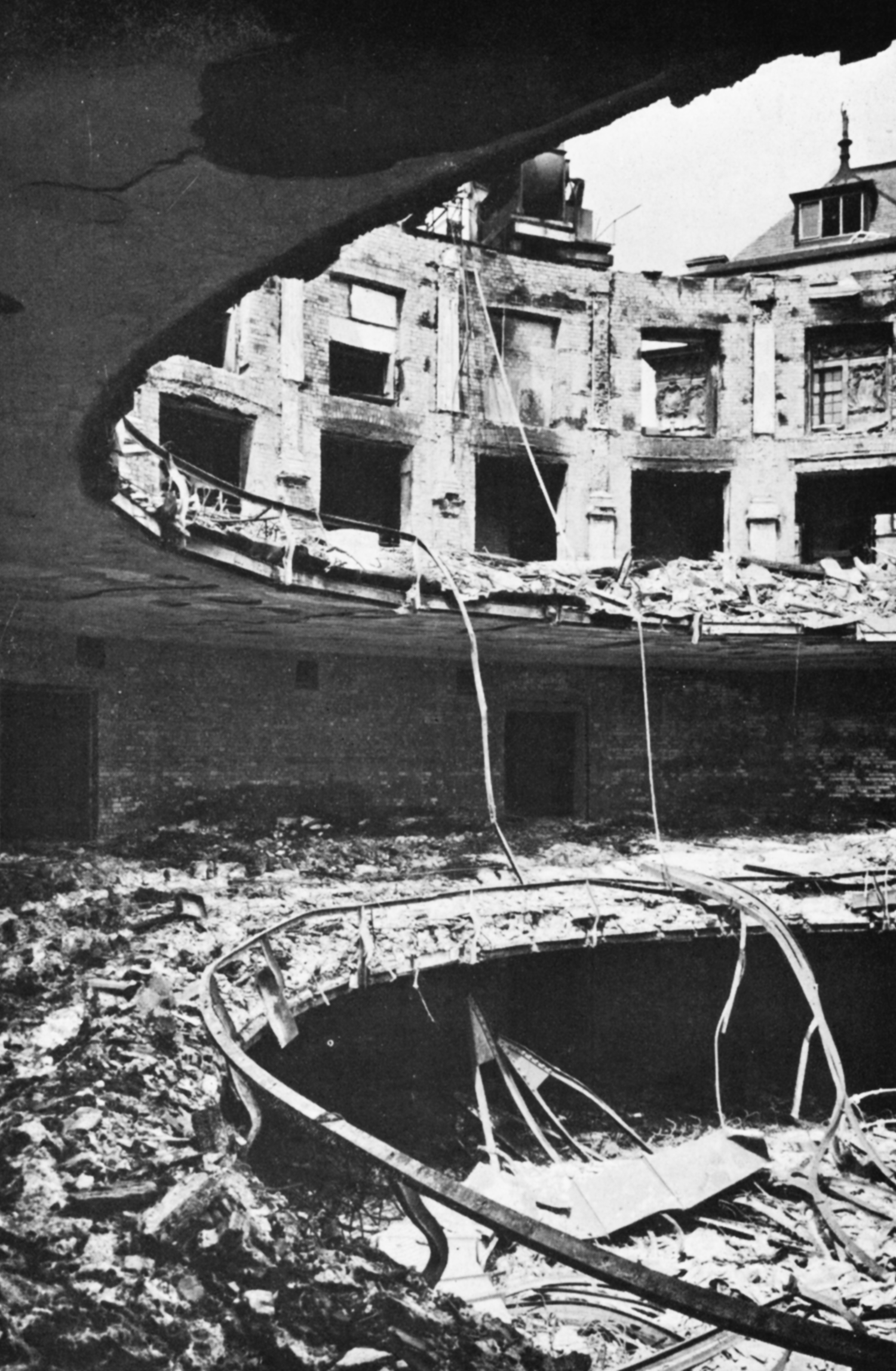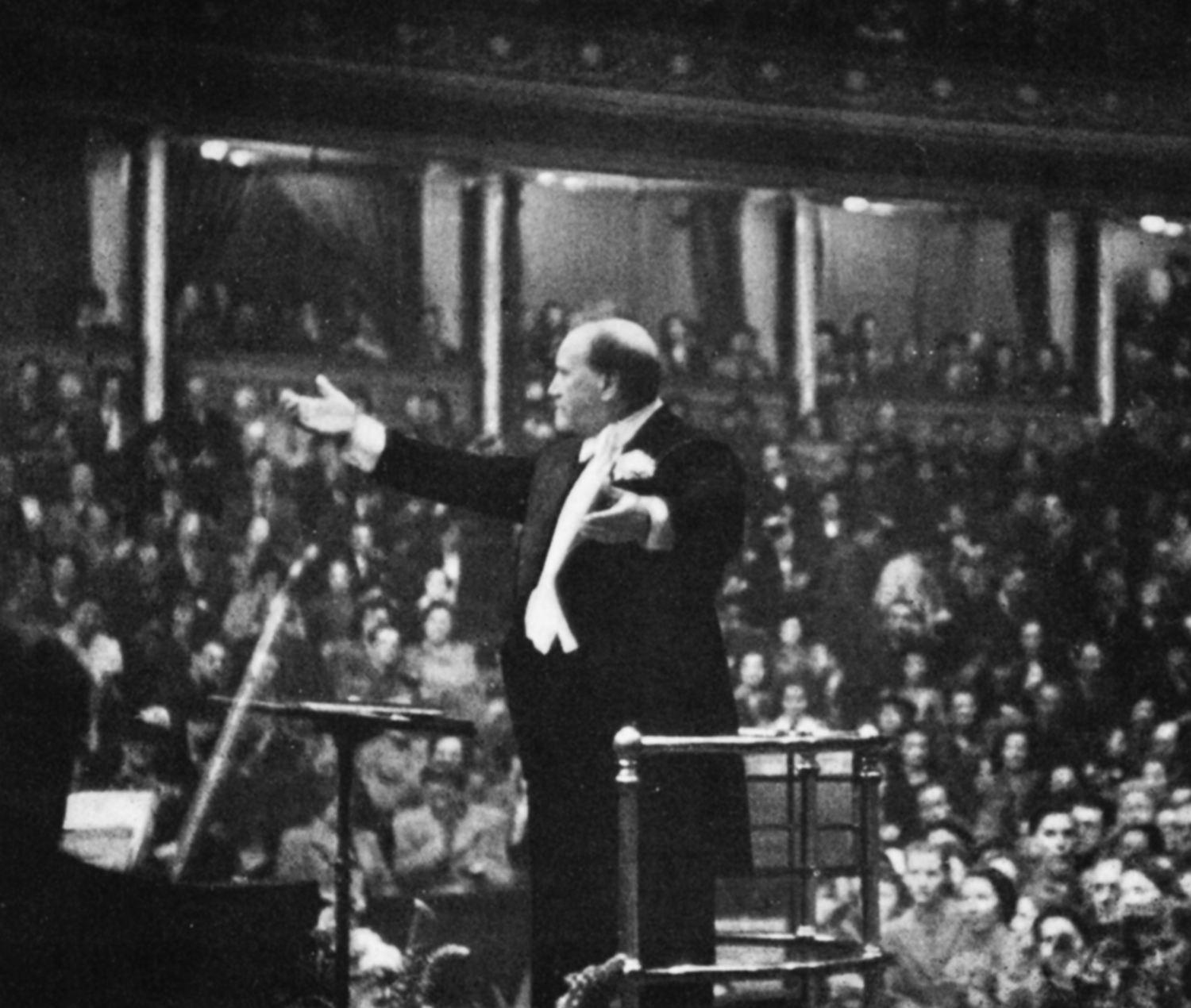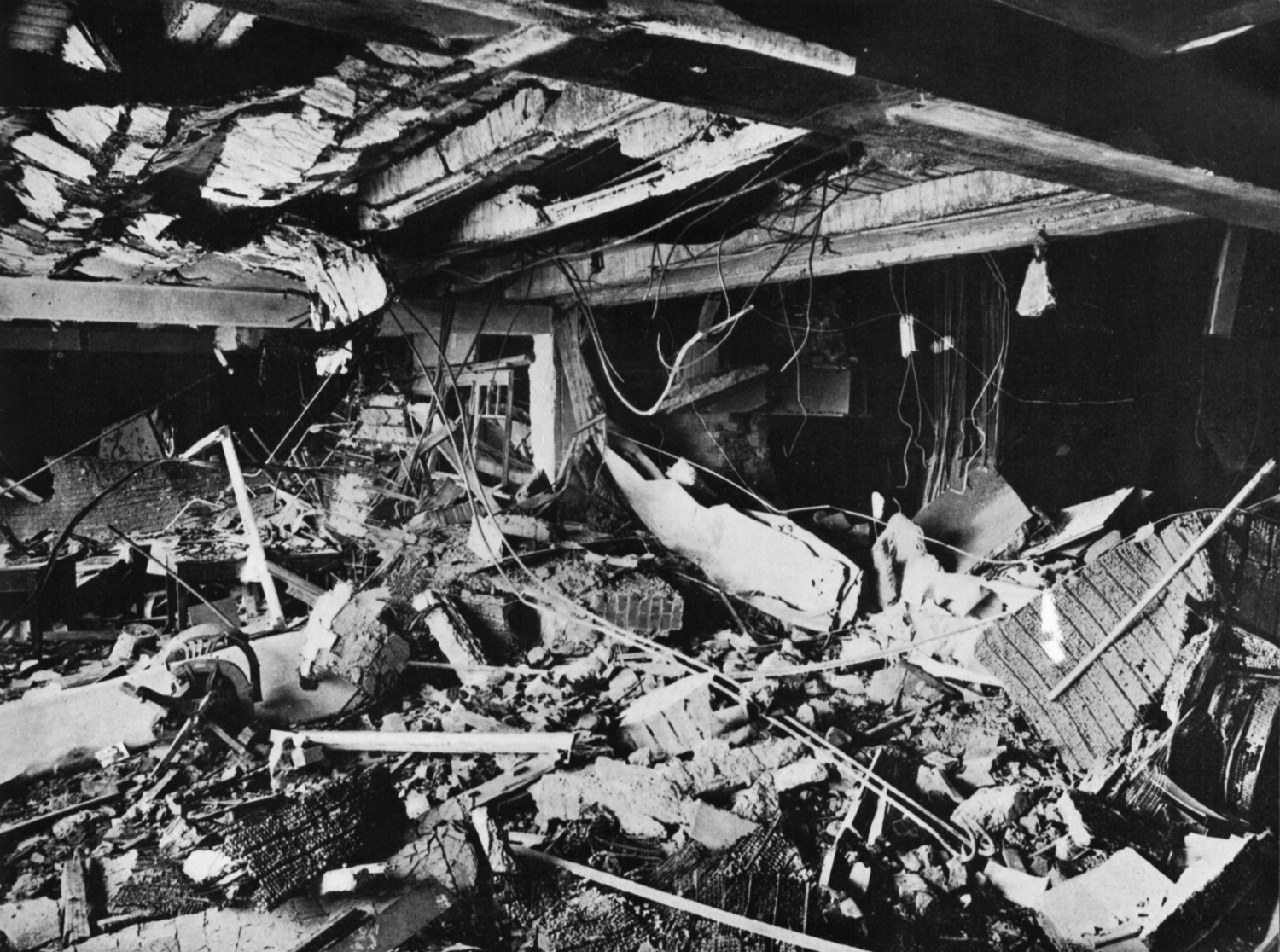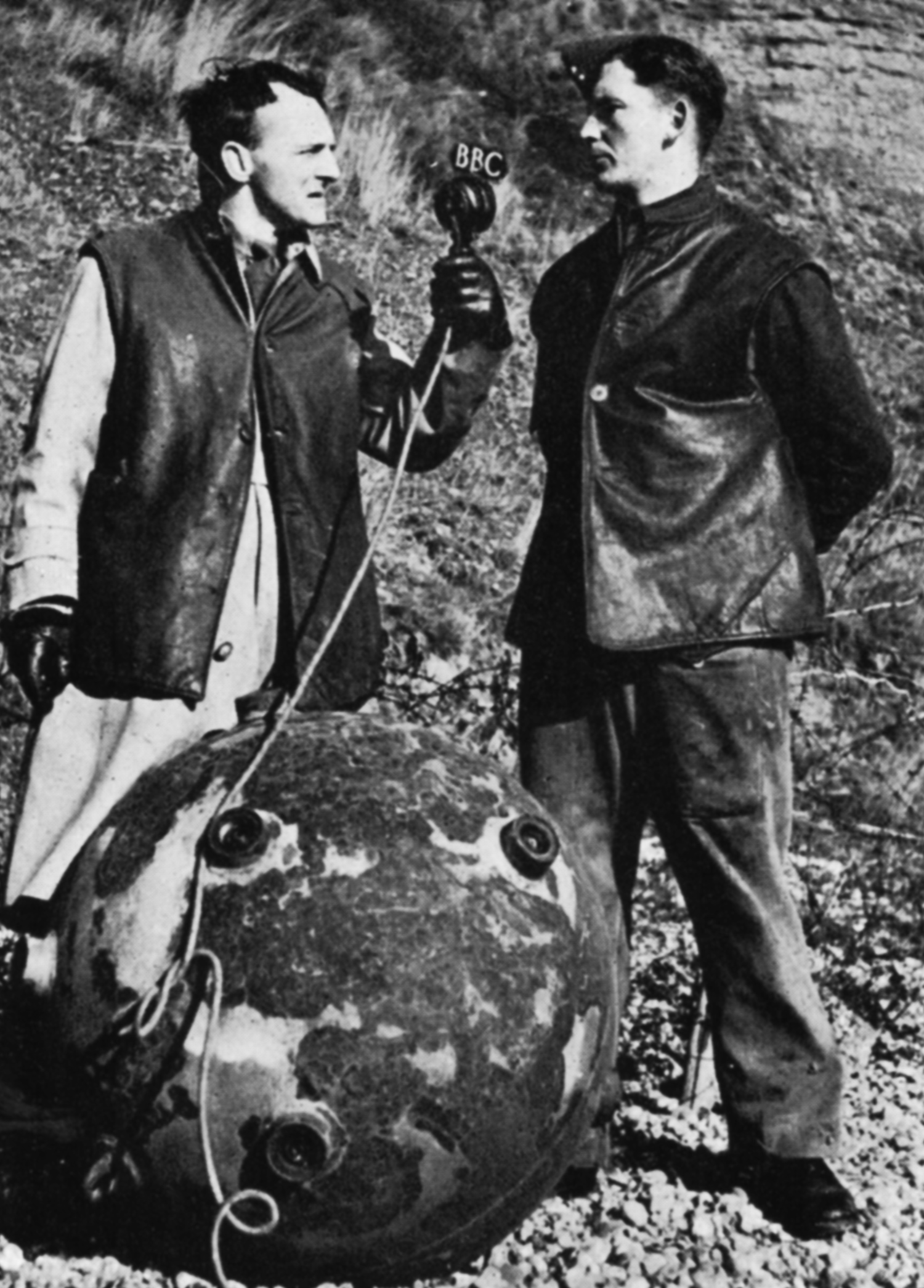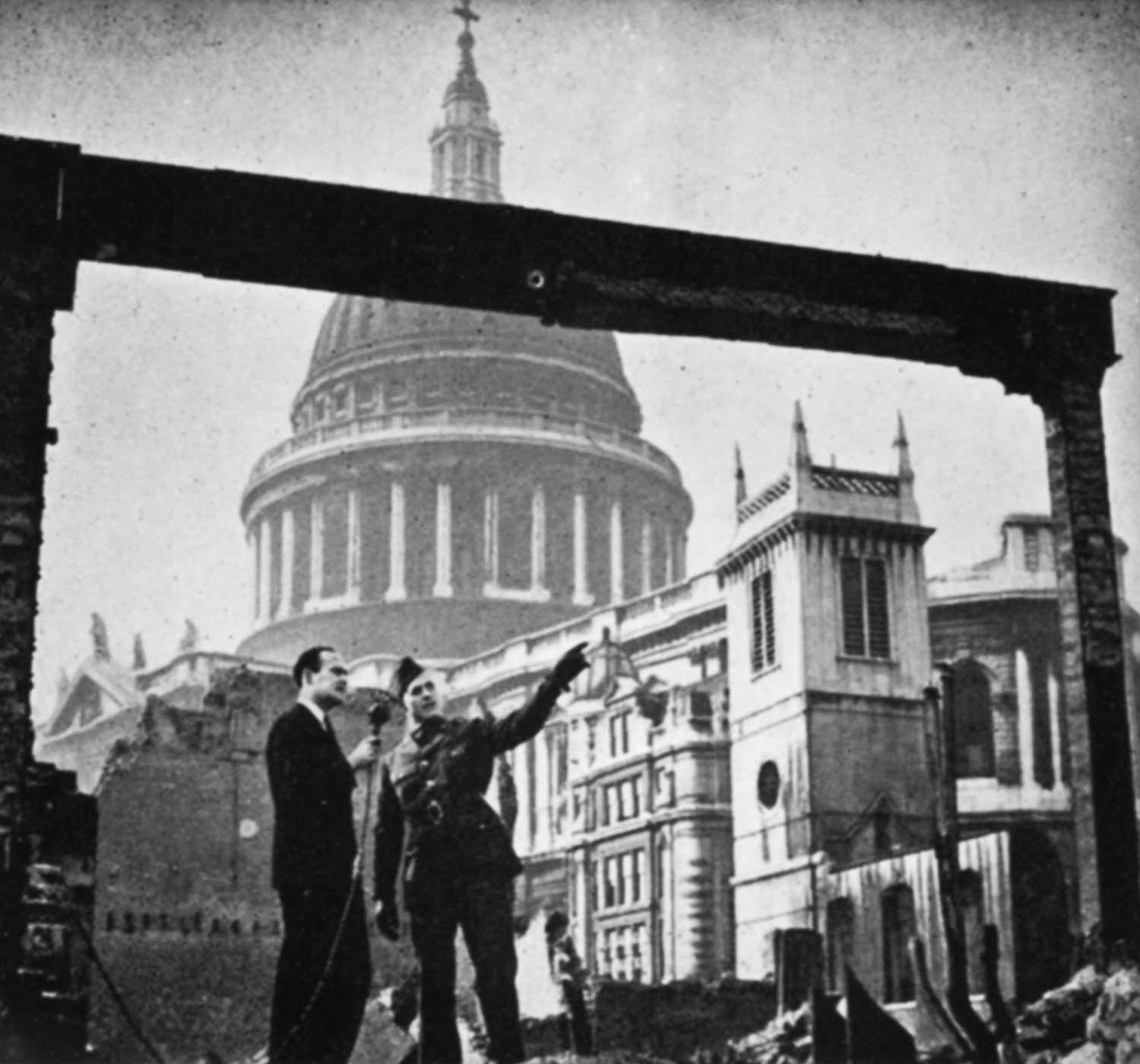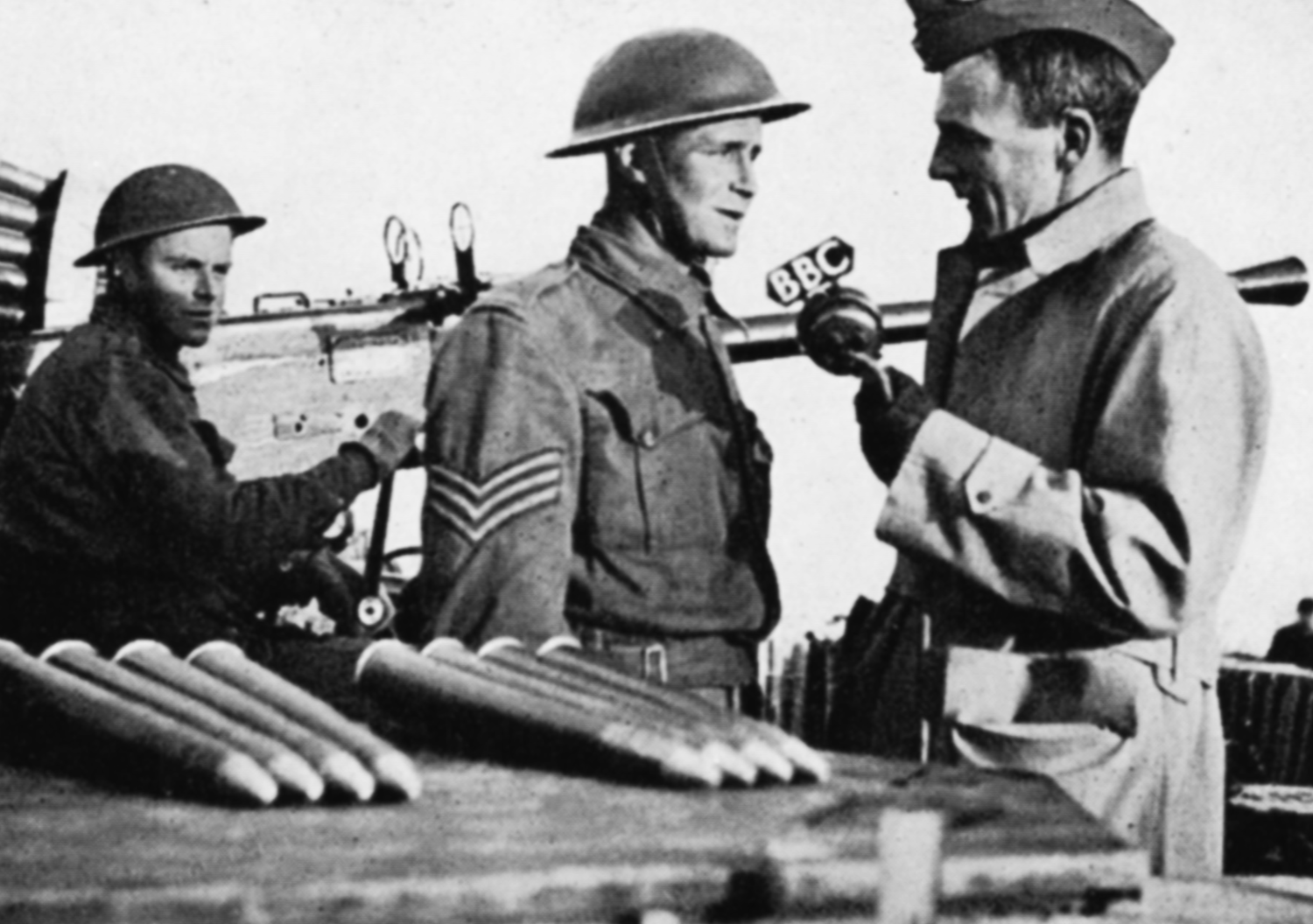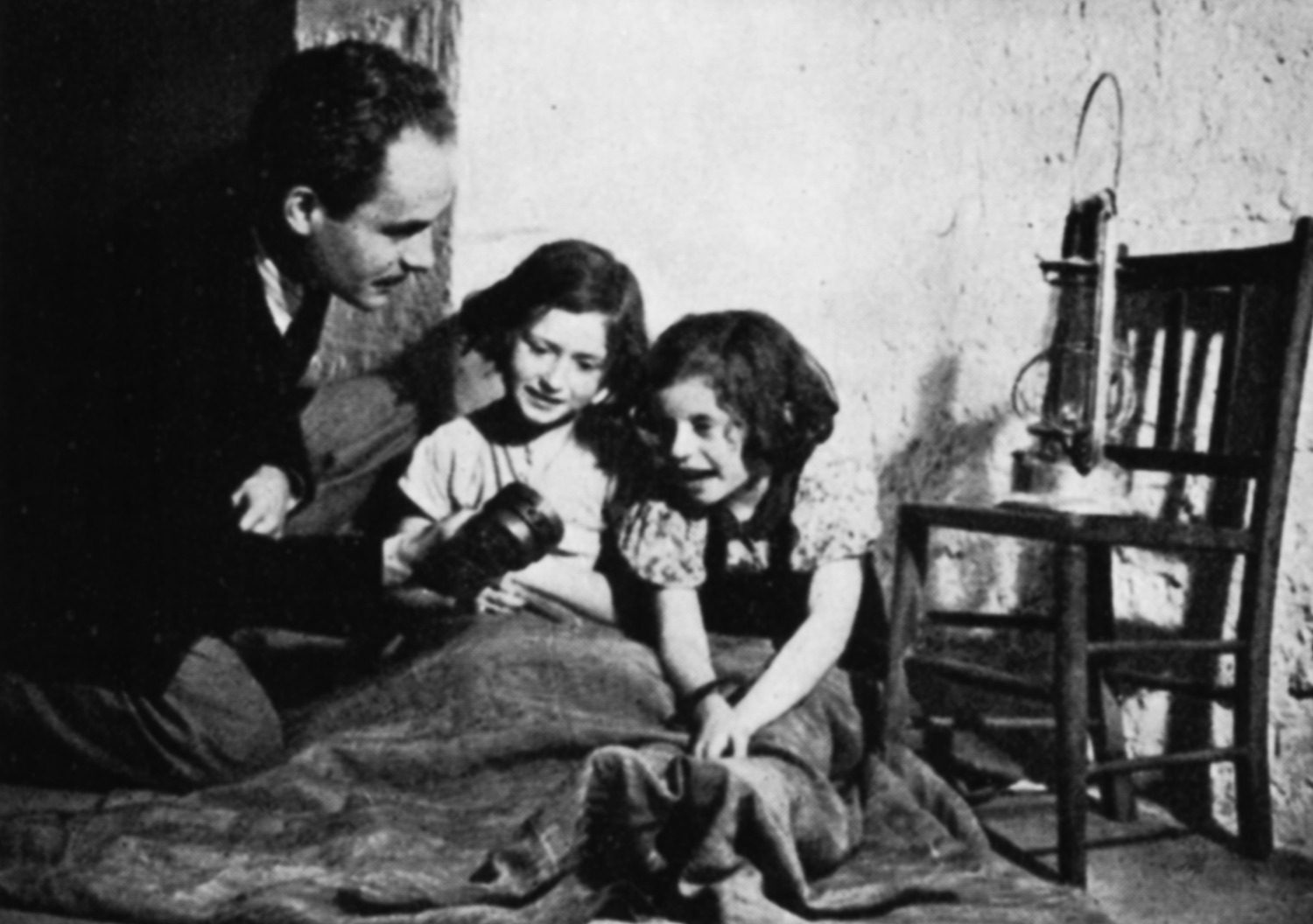War
IN SEPTEMBER, 1939, the BBC went to battle stations. Broadcasting must continue even if the country were dislocated by bombing or invasion. BBC units were therefore scattered. No guidance must be given to enemy aircraft. The transmission system was consequently reorganized overnight, a remarkable technical feat. For months it seemed as if these precautions were unnecessary. But the slow, menacing rhythm of the war mounted. France fell. The bombs came. Queen’s Hall, historic home of the ‘Proms’, was gutted. But the Prom went on, from the Albert Hall, with Sir Henry Wood, undaunted veteran, still on the rostrum (see pictures, above). Broadcasting House, no longer white and gleaming, but battle grey, was thrice hit and the studios in the central tower were wrecked (see photograph of the sixth floor, below). But broadcasting in the thick of the dust and danger, or from remote evacuation points, went on.

